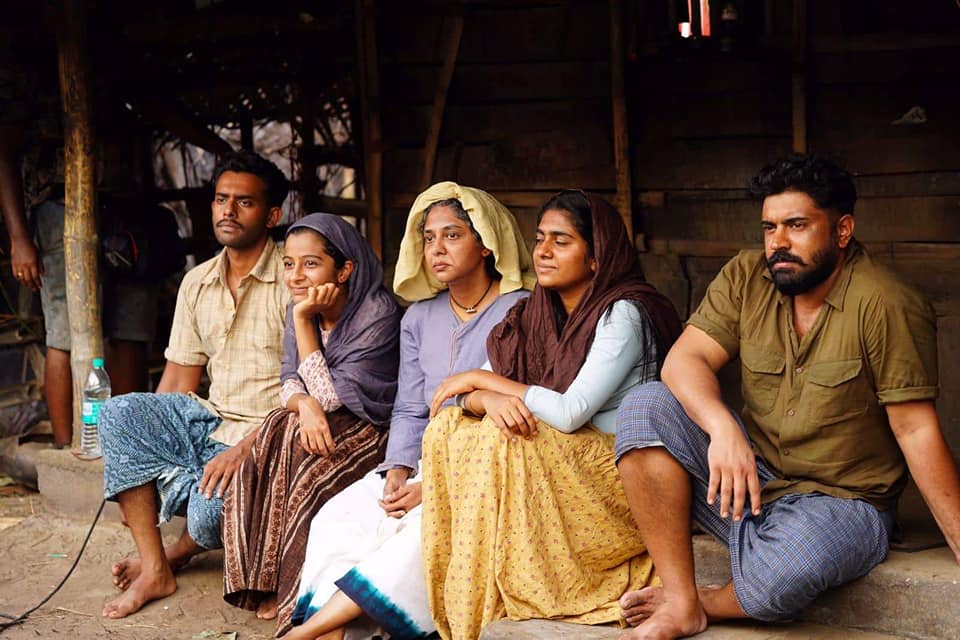
Thuramukham review: Rajeev Ravi chronicles labour mutiny at Kochi port

For Kochi old-timers, Pattalathe pullayi karuthiya Mattancherry Marakkamo (Lest we forget the Mattancherry which withstood the army) is a slogan that reverberated across the lengths and breadths of West Kochi at the height of the labour union protests till the 1990s. Yet, it is doubtful if anyone makes a causal reference to it today, including the ones who regurgitate and romanticise the Edappally police station storming.
That the likes of TM Abu – who later went on to become the Mayor of Kochi in 1971 – at its forefront stood firmly with the Communist Party of India (CPI) and did not join the Marxists could be another reason for the apathy. However, given the significance and symbolism of the labour mutiny to Kerala’s political and trade union history, it is important that the folklore surrounding it be brought back to the mainstream. And that is precisely what Rajeev Ravi attempts with Thuramukham (port).
Also read: Kaapa review: With a tangible local flavour, Prithvraj film packs a punch
Stunned silence
At one of its first screenings in Kochi, there is a stunned silence from the crowd as the end credits roll after three hours. Whether it is on account of being greatly moved by the film or it is a reflection of its languid pace and docu-fiction mode of story-telling is arguable. For this reviewer, at least, it was a great opportunity lost, given how much effort went into the staging of it, and the overall craft on display on canvas.
An adaption of KM Chidambaram’s yesteryear play ‘Thuramukham’, the celluloid version of it is scripted by none other than Gopan Chidambaram, son of the playwright himself. According to those who attended a special staging of the play at the Uru Art Harbour in 2018 to mark its 50th anniversary, the film largely remains true to the play, and it could be one of the reasons for it failing to strike a chord. Adaptation is a tricky business as KG George — a master at adapting literary sources into films – attests in his autobiography.
Great performances
The film’s overall length and lack of commercial trappings might also be an indication why it remained canned for so long. That is not to suggest that Thuramukham does not have things going for it. There are some great performances, of course, especially from Poornima Indrajith as the lynchpin, and the cinematography is also top-notch, as you would expect for a Rajeev Ravi film.
Also read: Baba review: Rajini’s cult film holds little appeal for a 2022 audience
In his endeavour to make a ‘class film’, Ravi seems to have forgotten that a film needs to deliver its punches and appeal to the average viewer as well, which is why a film such as Lal Salam (1990) continues to have an abiding fan-following. Ravi gets his casting right, though, with Nivin Pauly delivering a good performance as Mattancherry Moithu, along with Arjun Ashokan as his younger sibling. Nimisha Sajayan as, their common love interest and Sudev Nair as the antagonist, are in fine fettle.
The film delves into the dehumanising practice of ‘Chappa’ or ‘token’ system prevalent in the Kochi port wherein metal coins were flung at people who turned up for work at the harbour, resulting in frantic mayhem to grab them. The Cochin Thuramukha Thozhilali Union (CTTU) and the Port Cargo Labour Union (PCLU) owing allegiance to the Left resisted it, resulting in a more formal and less dehumanising form of token system, although there still was a cap on work permit.
Mattancherry memories
Following the lifting of the ban on the Communist Party in the Travancore-Cochin State this became a flashpoint once again, with the PCLU striking work in July 1953 and accusing the CTTU of ‘settling’ with the port authorities, culminating in the Mattancherry firing that killed three protestors – Syed, Saithalavi and Antony – on September 15. The system went on to be overhauled only in 1962 when the Dock Labour Board got constituted.
The Left monopoly of the trade unions in Kochi is possibly an offshoot of the movement, and a number of trade union leaders emerged in the Communist Party of India (Marxist) in its aftermath, hemmed in only by the factionalism that reared its head in the ‘90s leading to the sidelining of KN Raveendranath and VB Cherian, or the ‘CITU lobby’.
Also read: ‘Gulmohar’ review: A tender tale that embodies the spirit of love and freedom
Rajeev Ravi is also a product of that broad Left consensus, and having grown up in the city and having witnessed its growth into a metropolis from close quarters, he has made films on its people, especially on the marginalised folks. That was the case with his debut Annayum Rasoolum (2013) and Kammattipadam (2016) which had their distinct politics, and Thuramukham can be added to the list, documenting a forgotten chapter from its past.
More of a documentary
That Thuramukham ended up more as a documentary and less of a film is what goes wrong here – unlike his previous outings on Kochi. Even the dialogues are a let-down here, with nothing to remember, after coming out of the screening. You don’t necessarily deliver a good film by keeping its intensity high. Pauly as the prodigal son has his moments, but somehow fails to connect with the audience. Among the rest of the cast are Indrajith and Joju George, channelling his inner Mohanlal as usual.
Ravi also fails in exploring the politics of dispossession that played out in the decades 1920s’ and 30s’ when people who made a living from the riverine ecosystem were deprived of their livelihood in what was Kochi’s first big-ticket development project, which has its parallels in some of the more recent mass movements. Thuramukham is, nevertheless, a great attempt to bring the Mattancherry firing back into public memory and consciousness.

